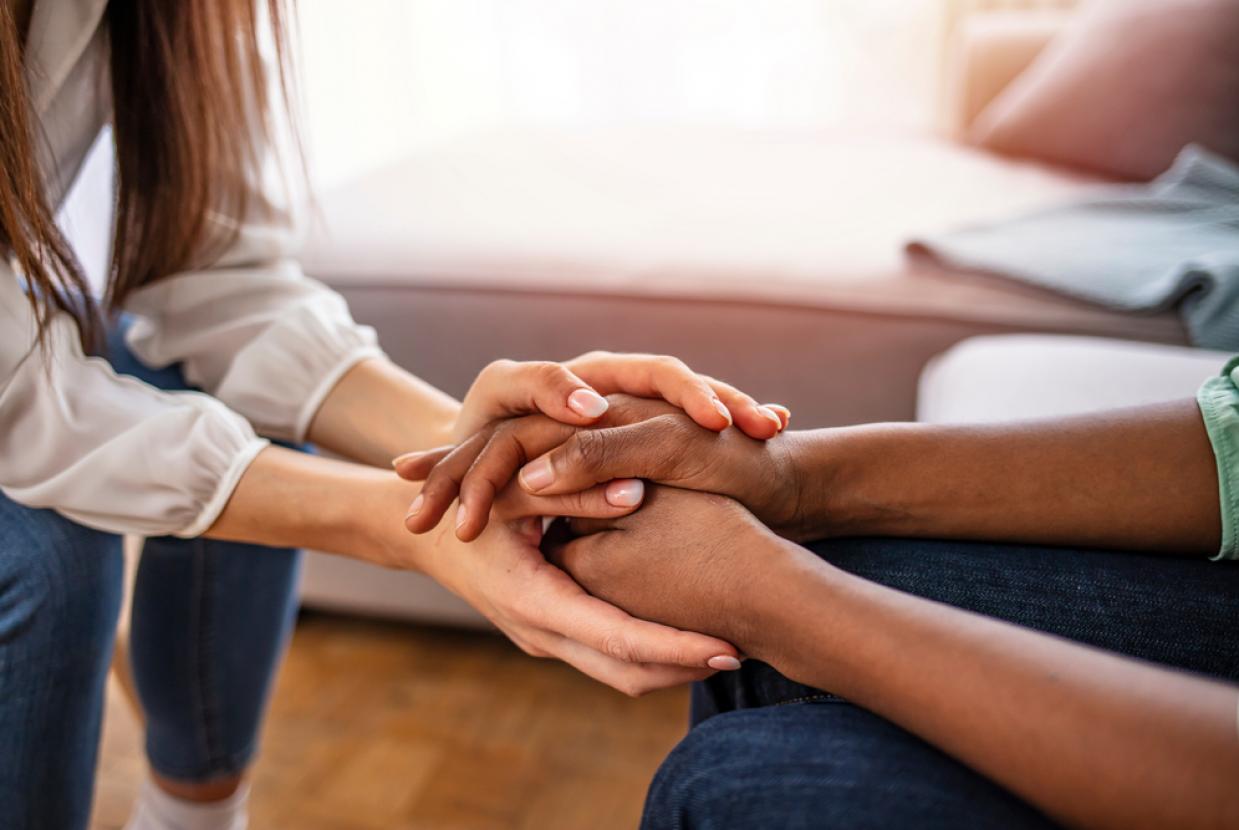Men's Health Week: Recognising Depression In Men
Mental Health / Men's HealthDepression is more common in men than you might think. As many as 1 in 8 will experience depression at some point in their lives. It’s also a diagnosable condition. It’s not a defect or a sign of weakness. Also, depression can be treated. If you think someone you know might be dealing with depression, there are steps you can take to show your support. But because men are less likely to seek help for depression, it’s important to know what signs to look for.
Depression may look different among men
Sadness, apathy, withdrawal. This is what depression looks like to many of us. And while men can experience any or all of these, one reason depression is often missed in men is that the symptoms can be different.For example, men are more likely to experience anger and irritability as a result of depression, as opposed to sadness and withdrawal. If your friend or partner seems to snap more easily than they used to, that may be a sign they’re struggling and need your support.
Common signs of depression in men
There are other common signs of depression to watch for, including changes in their physical health, emotional state, or their behaviour.
Keep in mind that no two individuals with depression are the same. Symptoms can vary widely from one person to the next. Having one or two of the symptoms listed below doesn’t automatically mean your friend is experiencing depression. Most of us will face at least some of these things from time to time.
To know whether your friend is going through life’s normal ups and downs or wrestling with something bigger, ask the following questions:
- Are they reacting to things in ways that seem significantly out of character?
- Are they experiencing any of these symptoms more severely than usual, or for a longer period of time (for example, two weeks or more)?
If the answer to either question is yes, then it may be time to offer help.
Physical signs of depression
Common physical signs of depression in men can include:
- Loss of appetite: routinely eating less than usual or showing little interest in food.
- Constant fatigue: for example, trouble getting out of bed each morning.
- Significant weight change: an increase or decrease that’s noticeably greater than the usual fluctuations we all experience.
- Chronic discomfort: persistent head, stomach, or muscle pain (especially if there is no other discernible medical cause).
- Problems sleeping: that is, more than the occasional bad night. It could be that they are sleeping more than usual, or less.
Emotional signs of depression
As already mentioned, the emotional effects of depression can be different for men than for others:
- Irritability: getting annoyed or losing patience with others more easily than normal.
- Anger: being unusually quick to lose their temper or becoming verbally hostile toward others.
- Indecisiveness: difficulty making decisions that once came easily.
- A feeling of hopelessness: if they express a general sense of despair or a belief that things will never get better.
- Struggling to feel happy: it’s normal to feel sadness sometimes, but if they are always sad, or struggling to connect with feeling happy (especially when doing things that used to make them happy), it might be a sign that depression has set in.
Behaviours that may signal depression
Depression can also lead to worrying changes in behaviour, some of which can have further physical and emotional effects. Don’t ignore any of these warning signs in someone close to you:
- Increased alcohol or drug use
- Loss of interest in favourite activities
- Engaging in high-risk activities
- Avoiding social interaction
- Changes in productivity at work or school
- Thoughts of suicide.
Always remember: depression is a clinical, diagnosable condition. It’s not your responsibility (or job) to diagnose your friend or partner. The most important thing you can do is encourage them to get the help they need if either you or they are worried.
What to do when a friend or family member is experiencing depression
If someone you care about is dealing with depression, there are practical steps you can take to offer support.
- Arrange a time to chat.Don’t make vague plans or hide behind a screen. Set a specific time and date for the two of you to get together in person. If your friend finds it difficult to talk, especially when the focus is all on them, try doing something else as a distraction. Some guys find it easier to open up during a walk or hike than if they’re sitting directly opposite from you.
- Offer empathy and support, not solutions.You don’t have to play the part of their counsellor or therapist. You don’t have to have the answers. Just be their friend. Listen well. Ask open-ended questions that encourage them to keep sharing – for example, ‘How is this affecting you most?’
- Reduce the stigma around depression.For some men, it’s hard talking about depression, much less getting the help they need, because of the stigma around it . Lots of men are taught from an early age that they have to appear ‘tough’ or ‘strong’, and that emotion is a sign of weakness. Take stigma out of the picture, perhaps by sharing your own experience with therapy, if applicable.
- Encourage your friend to talk to a therapist or counsellor.Remind them that seeking help is a valid and necessary investment in their well-being. If they’re reluctant to get professional care, you could offer to help find someone who might be a good fit for them.
- Get outside.Go for walks, hikes or bike rides together. Whatever your preferred activity, invite your friend to get outdoors and get active with you. You don’t need to use every outing to talk about what they’re going through. Just getting some physical activity may help counter some of the effects of depression.
- Follow up.Check in with your friend regularly. Make it a priority – put it on your calendar or to-do list. Even if they seem to be doing better, reach out to let them know they’re not alone, offer practical support, or just get outside together.
Content sourced from Movember UK (uk.movember.com).











































































































